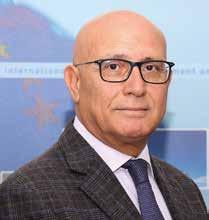
12 minute read
Adm. (ret.) Matteo Bisceglia, OCCAR’s Director
Adm. (ret.) Matteo Bisceglia, OCCAR’s Director, talks on Air and Space programmes
By Luca Peruzzi
Advertisement
A British A400M in flight; the OCCAR manages a number of European multinational programmes, becoming the contractor that deals with the industrial teams. © Airbus
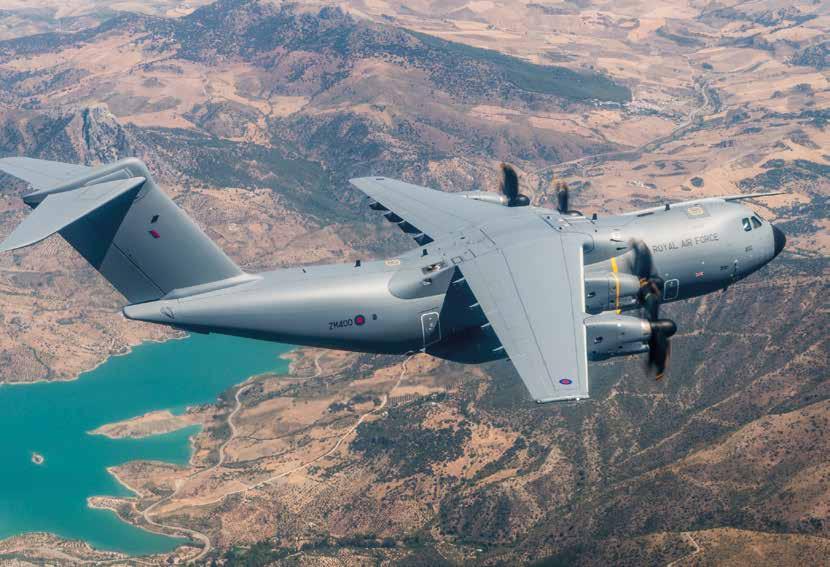
Admiral (ret.) Matteo Bisceglia is the Director of the Organisation Conjointe de Coopération en matière d’Armement, OCCAR in short. © OCCAR
Luca Peruzzi interviewed Admiral (ret.) Matteo Biceglia, who was appointed Director of the Organisation Conjointe de Coopération en matière d’Armement / Organisation for Joint Armament Co-operation (OCCAR) in September 2019. Adm. Bisceglia already served within the organisation along his career, so he was far from new to the organisation he was called to direct.
This an excerpt of the overall interview that can be read on the EDR On-Line website at the following address (https://www.edrmagazine.eu/occar-at-the-core-of-european-defence-cooperation-interview-with-adm-ret-matteo-bisceglia). This shortened version deals only with Air and Space programmes managed by OCCAR.
A summary of the programmes currently part of the OCCAR portfolio; Adm. Bisceglia looks forward at adding some more in the near future.
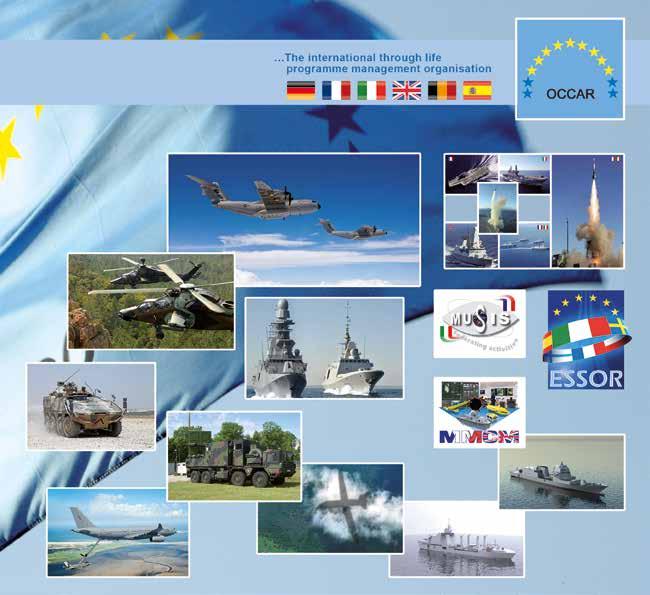
In his opening remarks Adm. Bisceglia underlined some of the key aspects of his organisation, starting from the fact that nations must renounce to an yearly analytical calculation of the return on investments, which brings duplications of efforts and inefficiencies that endanger the competitiveness of the European Defence industry, considering instead a multi-programme/multi-year balance. To expand the scope of the OCCAR to smaller programmes, he unveiled the proposal he made to his Board of Supervisors aimed at creating a Small Programmes Division, that will allow avoiding duplicating commercial and financial positions, one element being sufficient to run more than one programme considering their limited dimensions. He also underlined the optimal and fruitful relationship with other entities, such as the European Defence Agency (EDA) and the Permanent Structured Cooperation (PESCO), as well as with the NATO Support and Procurement Agency (NSPA).
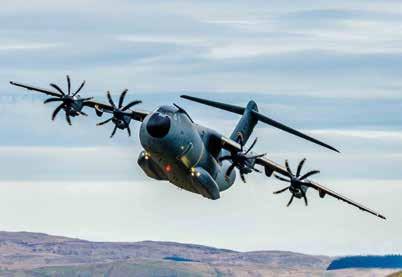
Among its task the OCCAR has that of following the qualification of new capabilities of the A400M Atlas tactical transport aircraft. © Airbus
An A400M refuels a French transport helicopter during the qualification of the Airbus aircraft in the tanker role. © DGA
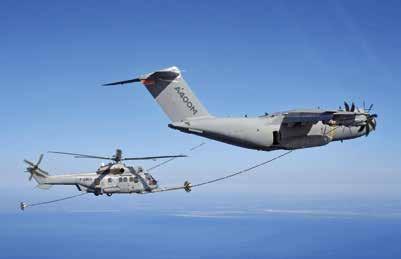
He also underlined the low overhead cost of OCCAR over the programmes it manages, the total operations budget being around 1.3 per cent of the overall value of the managed programmes. Hoping that the COVID pandemia will have a lesser impact on defence budgets than the 2008 financial crisis, and stating that the Brexit issue, the UK is one of the OCCAR funding nations, should not have an impact on the organisation, save some issues with custom duties, he definitely mentioned the need for an harmonisation of export regulations among European countries to favour export, the only way to achieve economy of scale and keep alive Eurpean Defence industry production facilities.
As for Air and Space programmes, here is the excerpt of the interview:
Which are the latest developments of the A400M, and the planned milestones and activities for 2020 and 2021?
The A400M is a fantastic and unique strategic and tactical transport aircraft, and all the crews that fly it are extremely pleased with the capabilities that the aircraft already provides. Among recent achievements to further expand its overall capabilities, in late May the A400M platform received the certification for automatic low-level flight, initially for visual meteorological conditions and later on, to be certified in Q2 2021, for instrumental meteorological conditions. Moreover, at the beginning of June, the aircraft completed full paratrooper simultaneous dispatch certification with a maximum of 116 paratroopers using both side doors (58+58).
A Spanish A400M in flight; Spain was not part of the OCCAR founding nations and joined the organisation in 2005. © Airbus
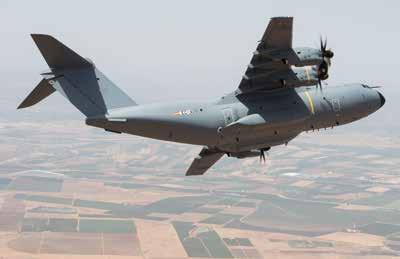
The re-baseline of the programme in June 2019 resulted in a significant contract amendment in terms of development, production and retrofit plans. The aircraft offers great potential for Partner Nations, as well as existing and further export customers, to achieve greater capability and significant through-life cost savings by maintaining a common aircraft standard and common in-service support. An Aircraft Global Support Project is developing according to a stepped approach, with the second step signed in June 2019 that provides a range of support services for all Nations until 2023. The long-term retrofit strategy has been established based on a two-step retrofit campaign, where the first is well in progress and on schedule with nine additional aircraft in 2020, while the Step-2 Retrofit campaign is planned to start this month.
The current year will also see the delivery of the first aircraft to Belgium and Luxembourg, with the first and only aircraft to be delivered to Luxembourg in June and the first aircraft delivered to Belgium in late summer. In line with the Nations agreement on Global Rebaselining production will ramp-down, total deliveries to Participating States and Malaysia having now reached over 90 aircraft, more than half of current orders. On the export side, Airbus Military Sociedad Limitada continues to explore numerous opportunities and campaigns, with the full support of OCCAR and the Participating States.
Activities continue in order to complete the development, with the achievement of interim aircraft standards NSOC2 and NSOC2.5 (New Standard Operating Capability) to be followed by
The key programme aiming at providing Europe with full independence in the Medium Altitude Long Endurance drone field is the MALE RPAS. © OCCAR
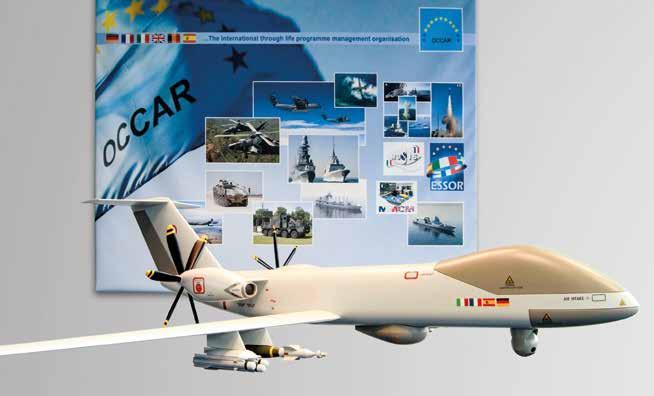
the final SOC3 (Standard Operating Capability) aircraft standard scheduled in 2022. Further progress are being and have been achieved in delivery capabilities, including aerial delivery and Electronic Warfare. In addition to the already mentioned automatic low-level flight capability and full paratrooper simultaneous dispatch certifications, the programme also successfully completed the initial helicopter air-to-air dry refuelling trials, wet trials being due to take place in the coming weeks.
The Engine Global Support Contract is expected to deliver further progress towards Engine Support Cost reduction, with work ongoing to replace the current contract in 2021.
Moreover, in March 2020, the Programme Board confirmed the move to commercial premises in Madrid; the relocation is expected to be completed by summer 2022. A continuous assessment is underway, with Industry and Nations, to identify and mitigate any impact to the programme caused by the COVID-19 outbreak.
Before the pandemic outbreak a potential contract award for the Development, Production and In-Service Support for the MALE RPAS was set for Q3 2020. Are you confident to reach this milestone within the mentioned period?
The MALE RPAS, a critical capability identified by the European Council in 2013, will grow to be another “lighthouse project” of OCCAR, once the contract for the Development, Production and Initial In Service Support is signed, hopefully by the end of 2020, in light of delays suffered also
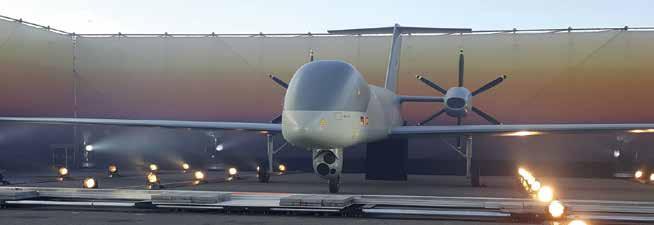
Four of the six OCCAR nations, France, Germany, Italy and Spain, are actively working on the MALE RPAS programme. © OCCAR
The Multinational MRTT Fleet, which aims at pooling European air-refuelling capabilities based on the Airbus A330-200 MRTT, is open also to non-OCCAR nations. © NATO

due to the COVID. As you can imagine, it is a very big contract for which the initial offer was received on 29 May 2019. Industry was given indications on where to rework the offer to reach convergence with the 7.1 Billion € requested by nations. So far, the Programme Division is working with nations and industry in order to reach a common position. I would not like to de-scope the requirements. I believe the MALE RPAS has to go forward with a competitive configuration, and a competitive price. Europe cannot afford to miss this opportunity. I’d like to praise the work of the staff members of the MALE RPAS Division, performed in an extremely professional way, despite the uncertainties of the programme, due to the very challenging ongoing negotiation. I am confident we will reach the agreement to sign the contract as scheduled.
The Multinational MRTT Fleet (MMF) programme continues to reach new milestones. Do you expect additional customers to join with new aircraft procurement and options?
The MMF is a complete success, a programme that is working on time, cost and performance to the satisfaction of its customers. In 2020 we want to deliver the first three MMF aircraft in time despite the COVID-19 crises. The first contract was launched in 2016 by the Netherlands and Luxembourg. Germany and Norway joined in 2017 and Belgium in early 2018. The Czech Republic joined the programme in 2019 with
An MRTT aircraft takes off from Getafe with Spanish markings; the Spanish facility is the A330 conversion centre where commercial jetliners become MRTT aircraft. © Airbus
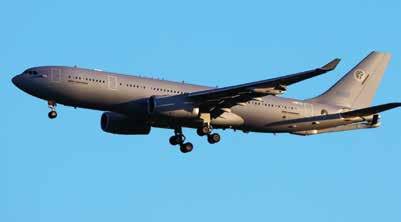
a small participation of 100 flight hours, thus becoming the sixth nation to participate to this initiative. The European Defence Agency (EDA) has been supporting OCCAR, alongside MMF nations, looking for synergies with other MRTT users and in general in the Air-to-Air-Refuelling (AAR) and transport domain, and further nations have shown interest in this system and are willing to join the programme.
Canada interest seems to be growing very strong. They have an ageing fleet of Airbus 310 (like Germany), and one of them is permanently based in Europe. Denmark has also expressed interest. And we also have France, that in June 20019 at Le Bourget signed a Letter of Intent for cooperation with the MMF. OCCAR could for instance find synergies with the French programme for spares. The current customers are considering increasing their initial orders, namely Luxembourg and Norway. Luxembourg e.g. has announced a flight hour increase of 1,000 hours, which means an additional plane for the MMF programme. This summer we intend to sign the contract amendment for aircraft MMF 9. Norway has indicated that it may intend to increase its flight hours between 500 and 2000. This increase from Norway could lead to two more MMF aircraft. This would implement all three options and the MMF programme would have a total of 11 aircraft. So there are various interested parties to join or cooperate in this very successful programme and we are very optimistic about the future of the MMF.
The Tiger combat helicopter programme, initiated by France and Germany, was placed under OCCAR responsibility since its legal status was achieved in 2001. © Airbus Helicopters
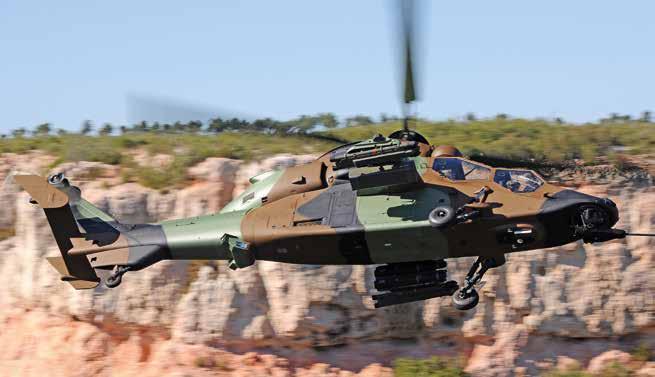
Recently you have announced a contract award for the new Tiger Mk III mid-life upgrade programme by the beginning of next year. Which are the main upgrade elements?
There are upgrades in the airframe and in the weapons systems. For instance, the Mk III will bring real time sharing of threats, mission data and situational awareness thanks to new digital avionics and a new battlefield management system.
It foresees new air-to-ground missiles with man in the loop, new air-to-air missiles, new laser
Among the upgrades managed by OCCAR we find the Tiger ASGARD (Afghanistan Stabilization German Army Rapid Deployment), which included the addition of sand filters on engines’ intakes and add-on ballistic protection for the crew. © Airbus Helicopters
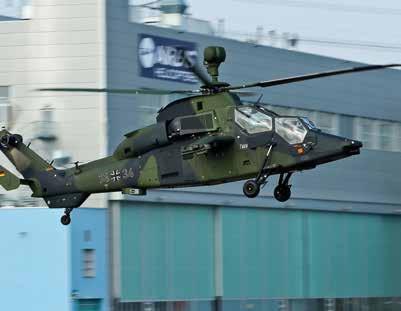
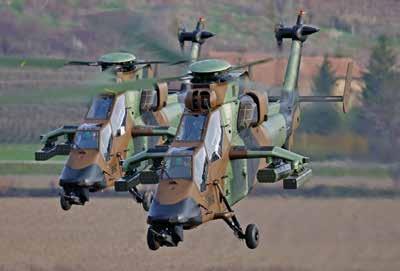
OCCAR is managing the Tiger Mk III Mid-Life Update that includes airframe upgrades and a complete reshuffling of the avionic suite. © Airbus Helicopters
guided rockets, a new gun pod and an improved turreted gun, to complete the panel of latest generation weapons. It also improves targeting with new high performance sensors, helmets, and the latest detection and identification capabilities, and reduces the crew workload thanks to the state-of-the-art digital avionics suite and its five 10-inches colour displays.
This ensures that the Tiger keeps will remain a formidable attack helicopter for Participating States. It is almost a brand new helicopter! I am strongly pushing to manage that the Participating
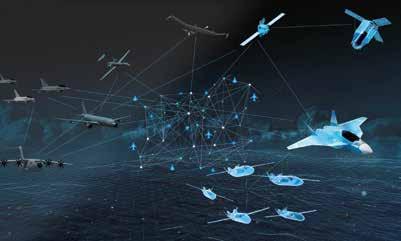
A pictorial showing the concept of the Future Combat Air System; this programme is not under the OCCAR auspices, but it might well fall under it in due time. © Dassault Aviation
States agree to a single configuration. A lot of work has already been accomplished to this end, but there are still some specific requirements that make the cooperation not as successful as it could be, and endanger the savings that can be achieved in the Development and In-Service Support, besides jeopardizing the export potential.
Which are the next milestones for the Multinational Space-based Imaging System (MUSIS) Stage 2 programme following the contract award?
The MUSIS is currently in its full development phase. Taking into consideration contractual requirements and the system operational concept, the MUSIS team is focused in developing the system architecture (both logical and physical), in defining the relevant information that the two systems will exchange and the definition of technical specifications at system and subsystem level, including those for ILS and ISS. The Preliminary Design Review (PDR) was achieved in June, and the Critical Design Review (CDR) is planned for late September this year and will mark a turning point in the whole development process. The MUSIS is an example of very constructive cooperation between Italy and France. Despite the negative impact of Covid-19, the team has strengthened its internal cohesion working together to achieve objectives for the success of this challenging programme.
What can you foresee about the FCAS future, as far as OCCAR is concerned?
The OCCAR core business has been so far the management of large complex programmes, the organisation structure is better suited for those. It does not prevent our Member States to entrust OCCAR with small programmes if so they wish, however, I must confess it is the FCAS programme that I would like to see integrated into OCCAR, my organisation being more than ready to take this challenge. It might thus become a flagship programme one day, which will boost the EDTIB (European Defence Technological and Industrial Base).
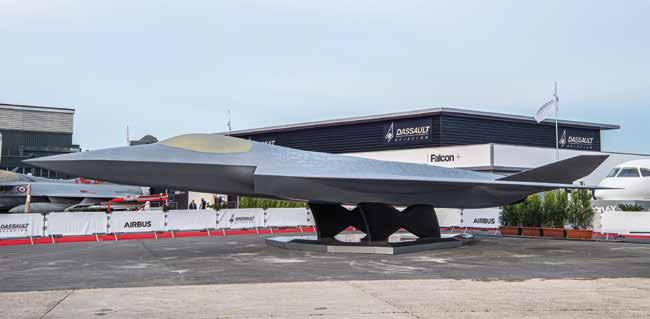
The mock-up of the Future Combat Air System exhibited at the Paris Air Show 2019; the programme team includes three nations that are part of OCCAR, France, Germany and Spain, although the programme is not currently part of the OCCAR portfolio. © Dassault Aviation






